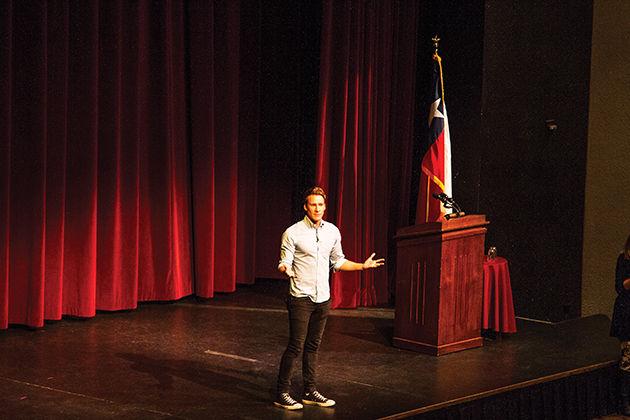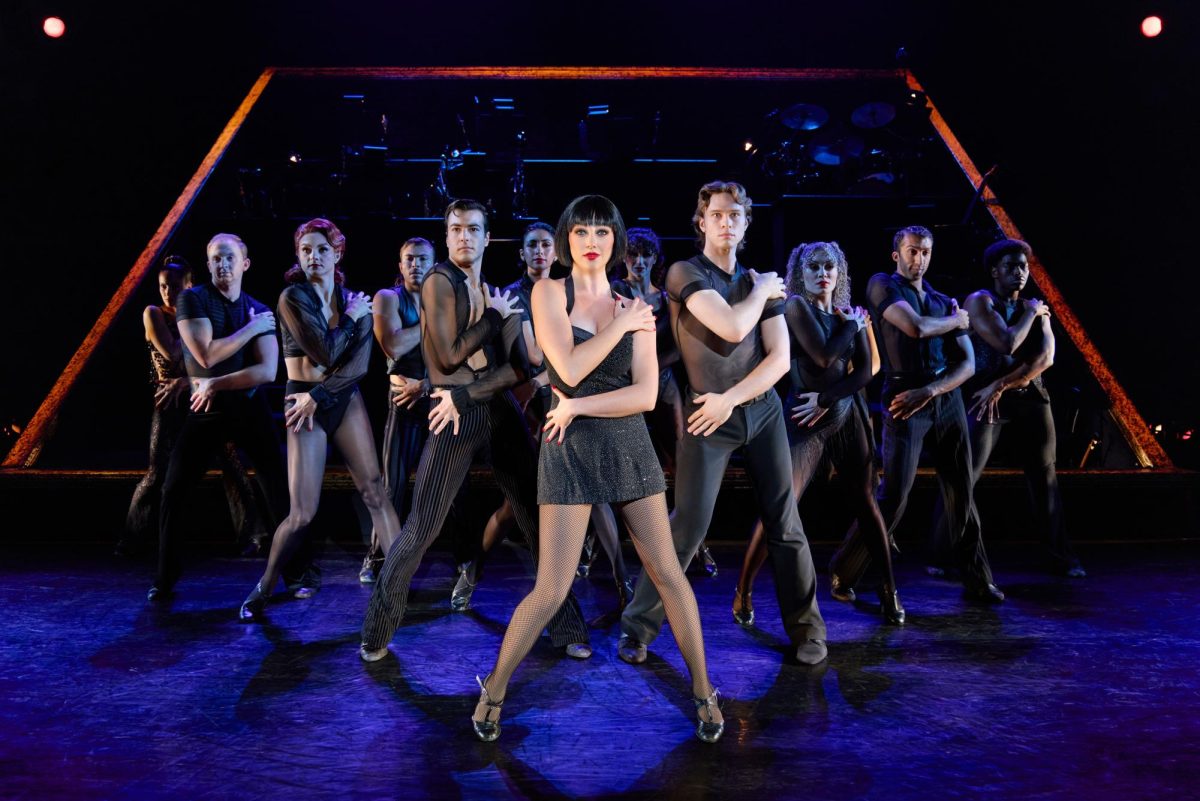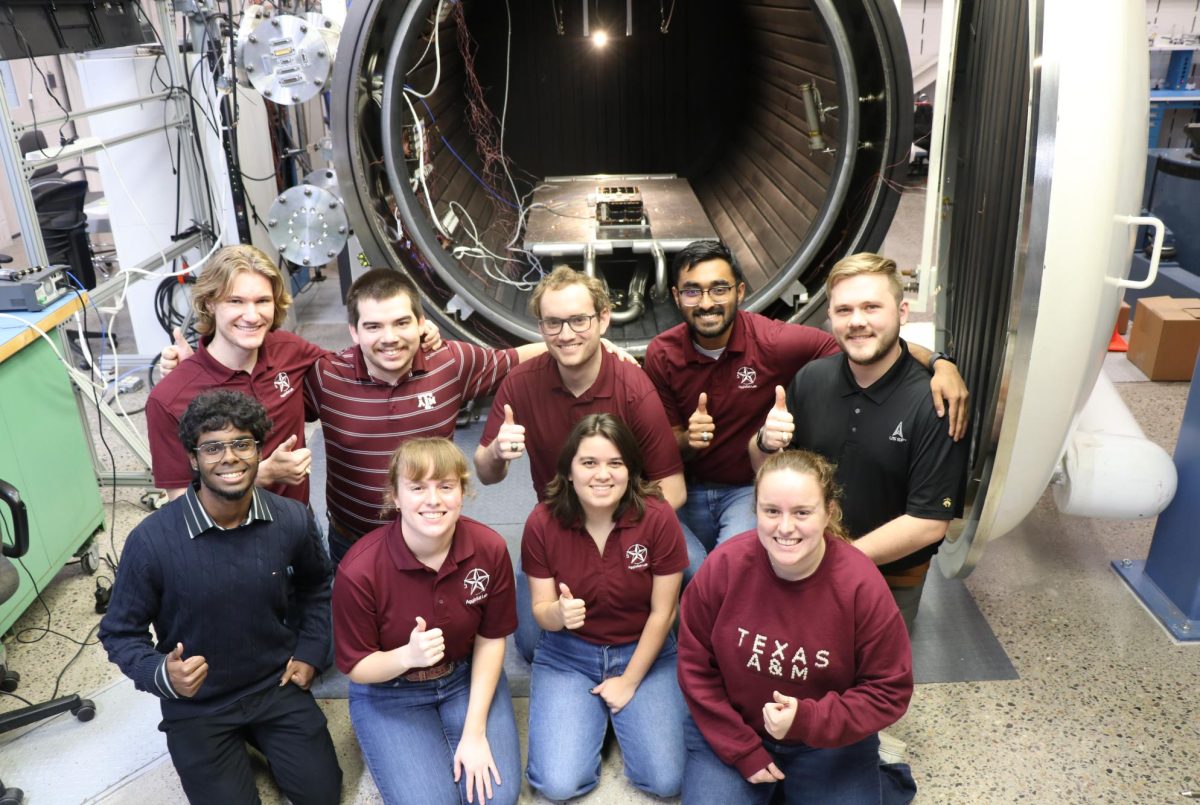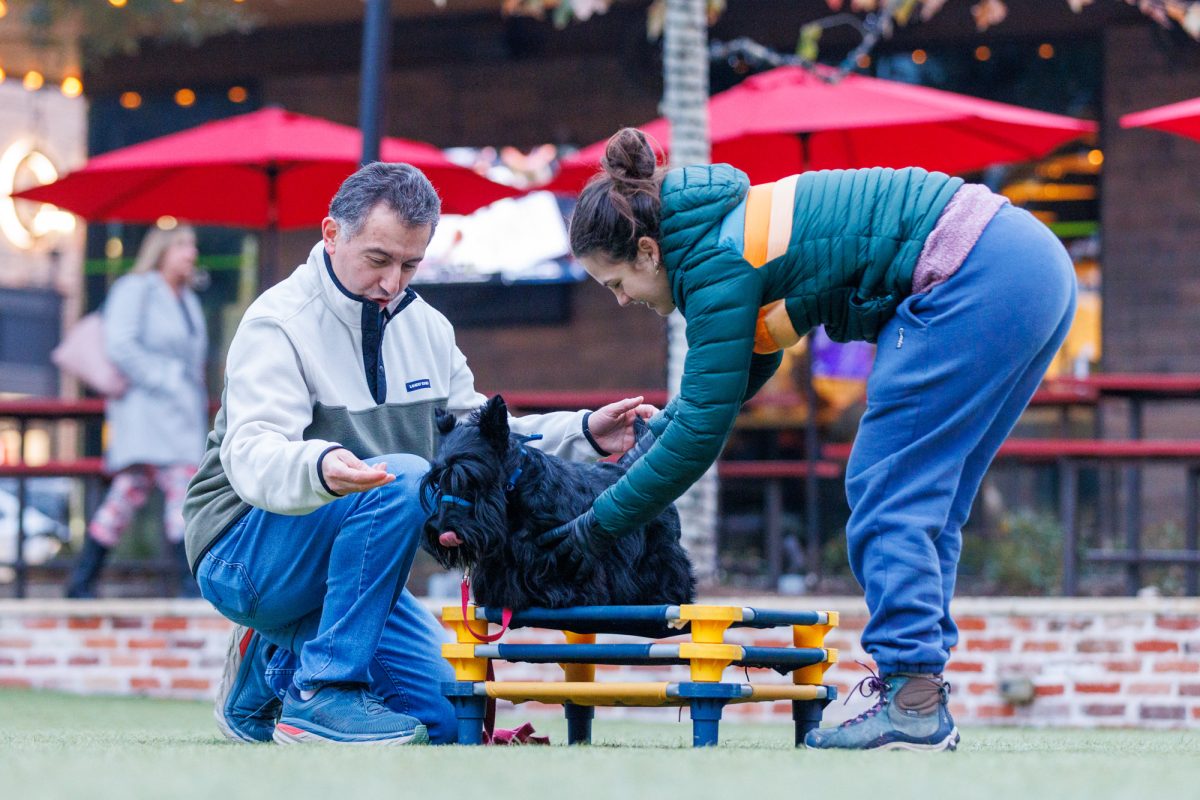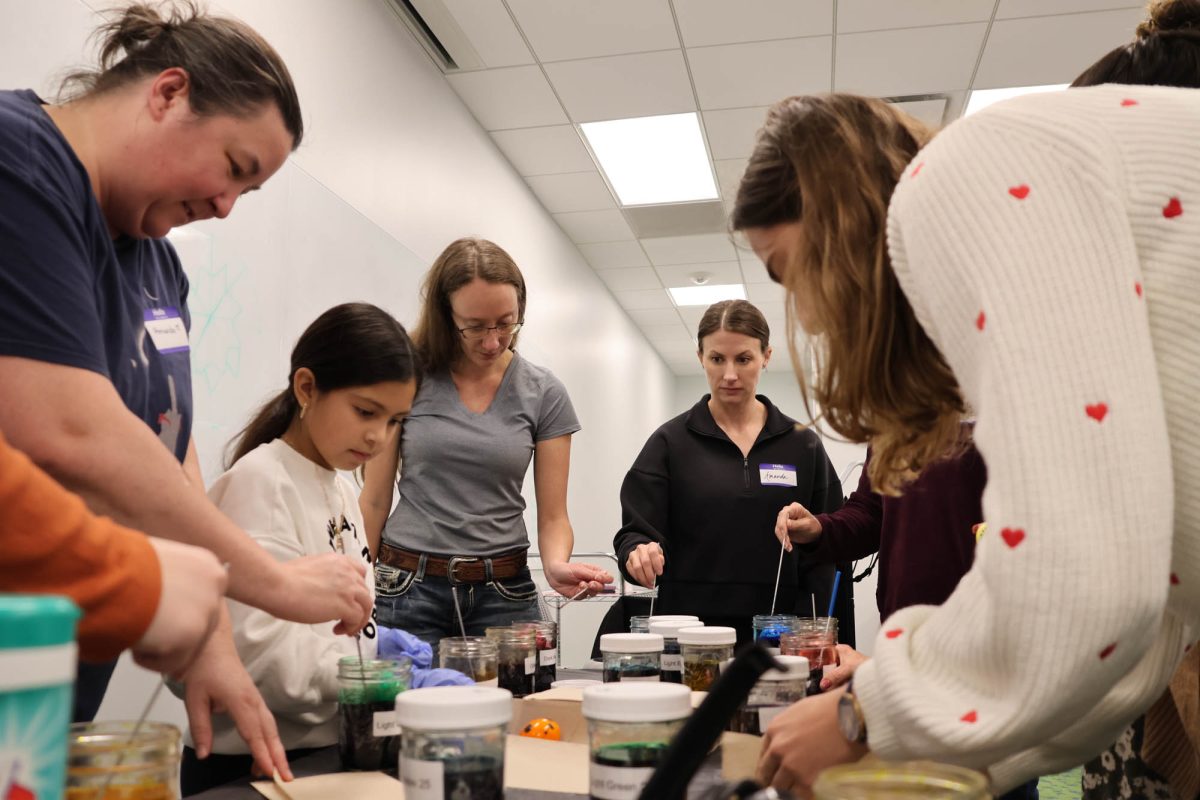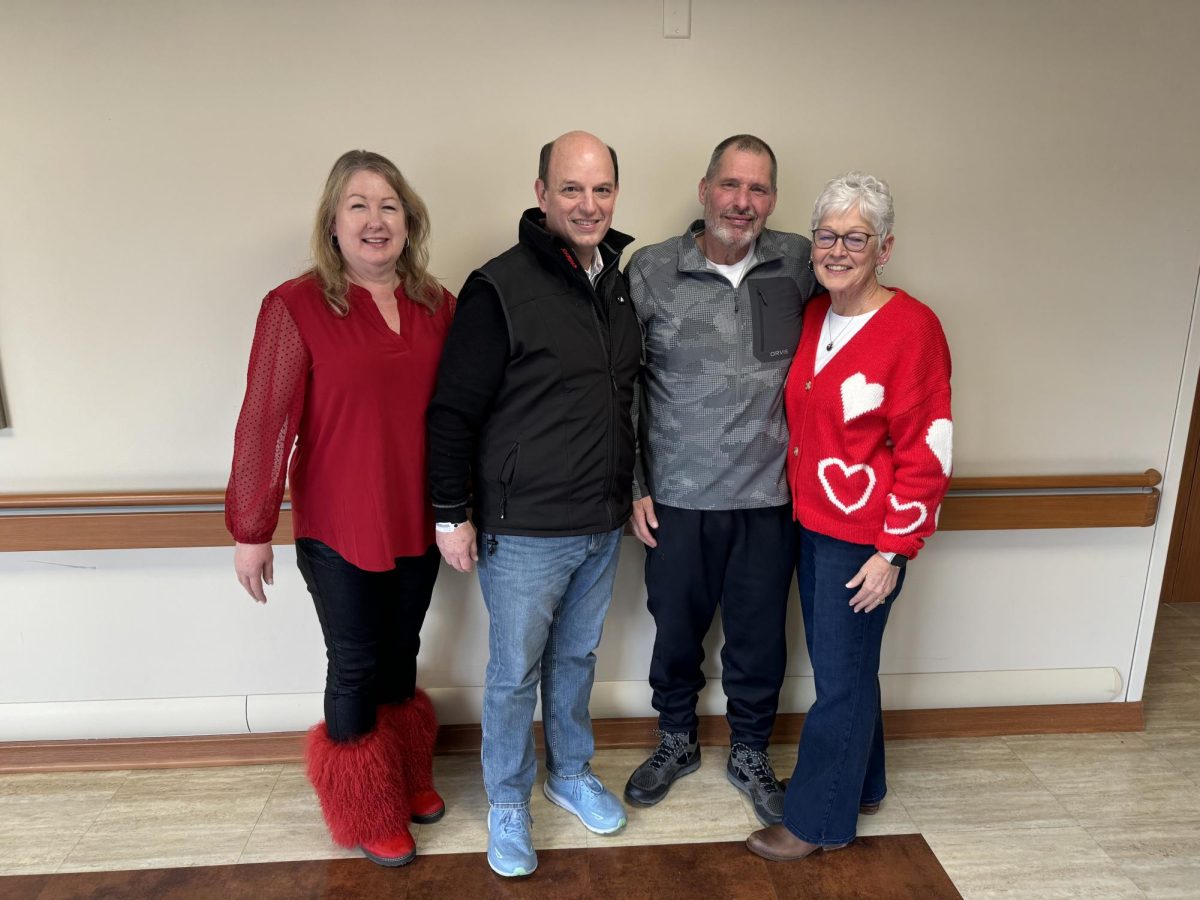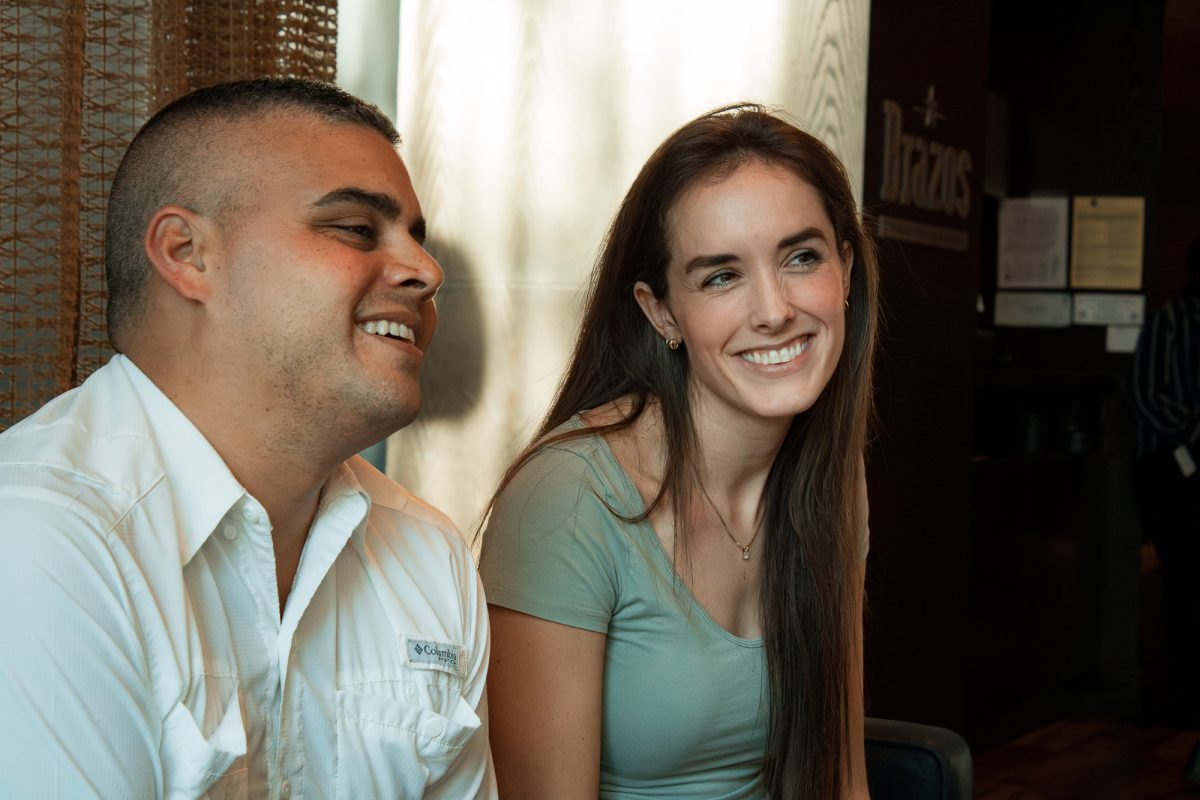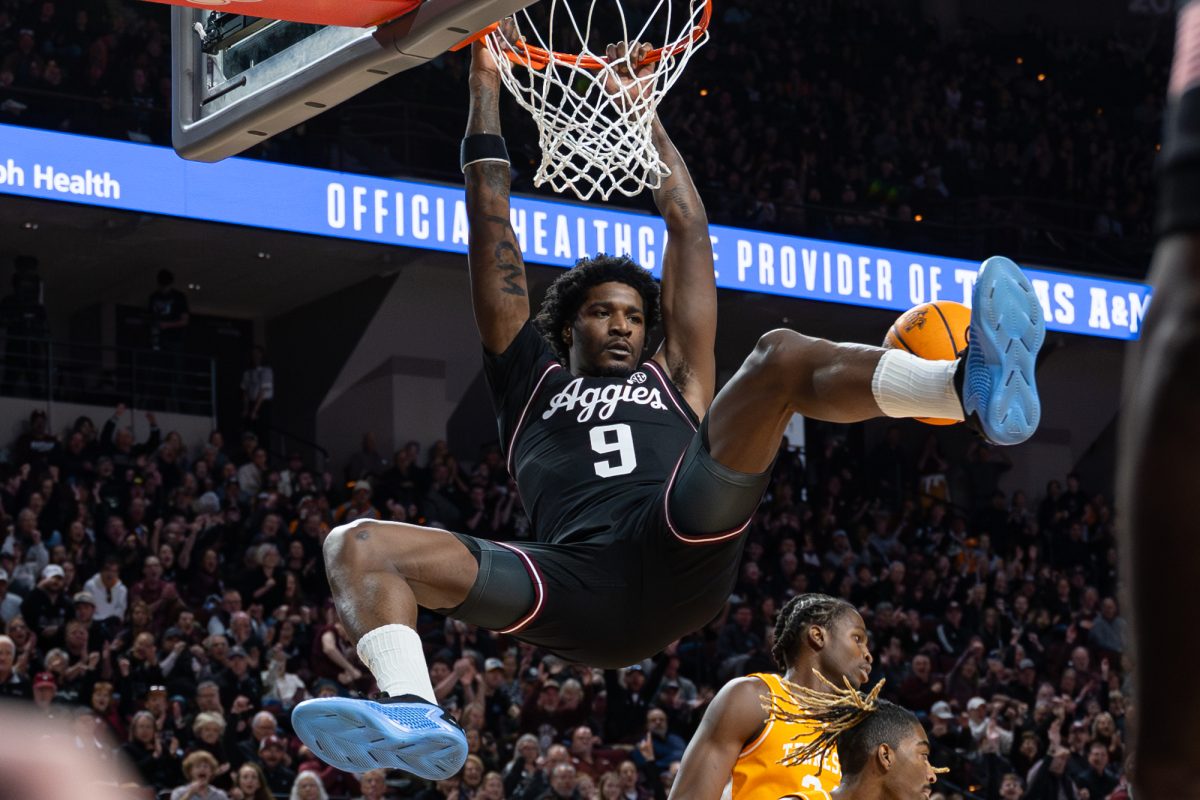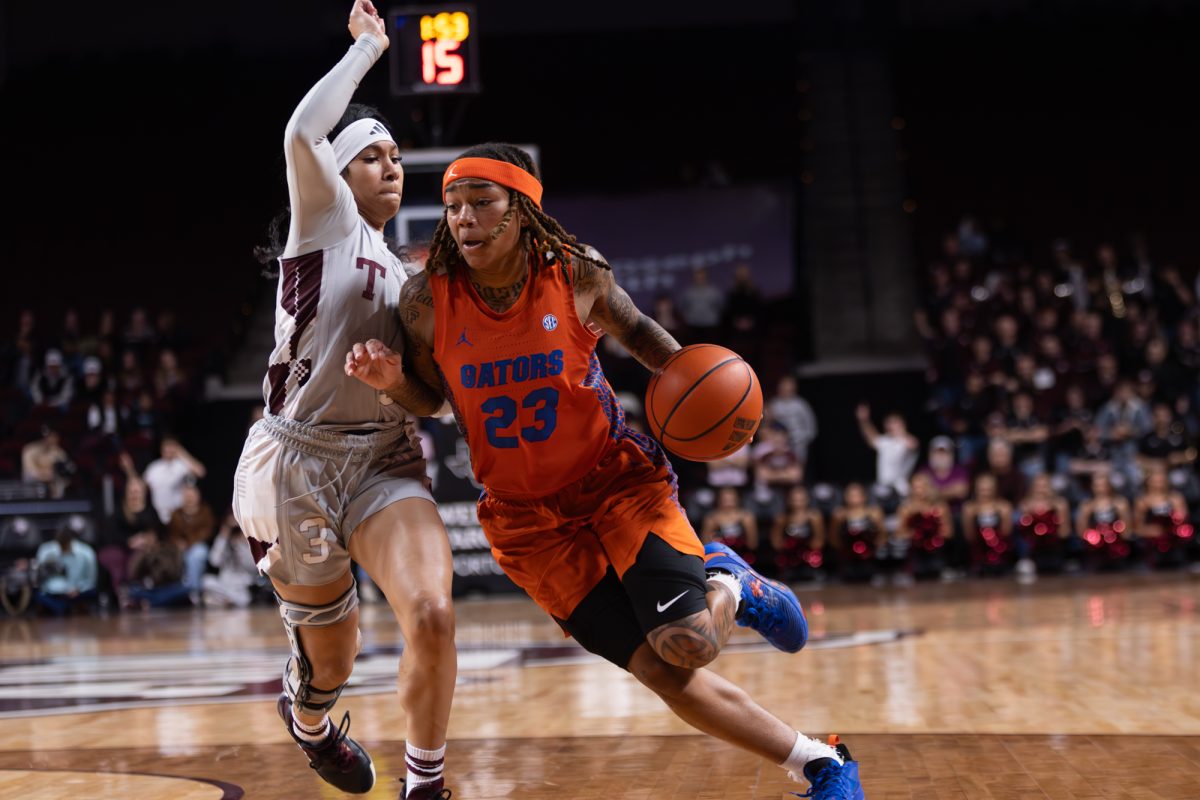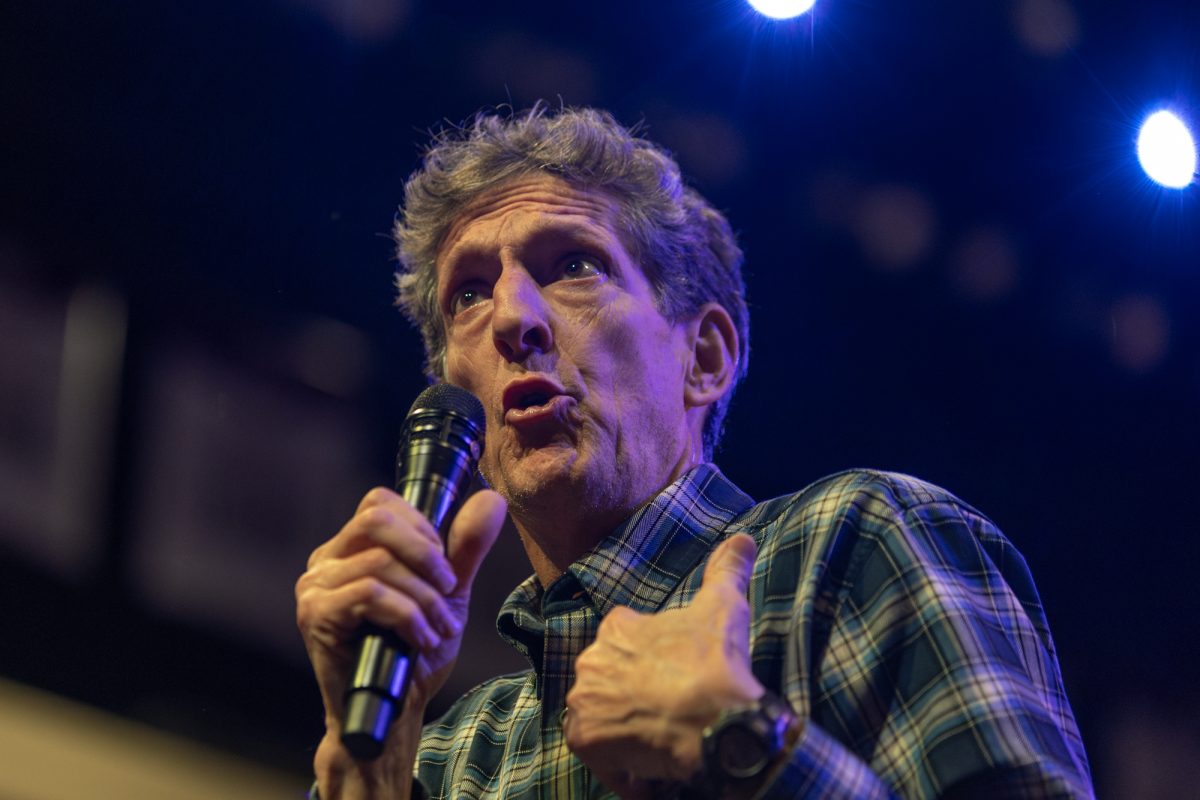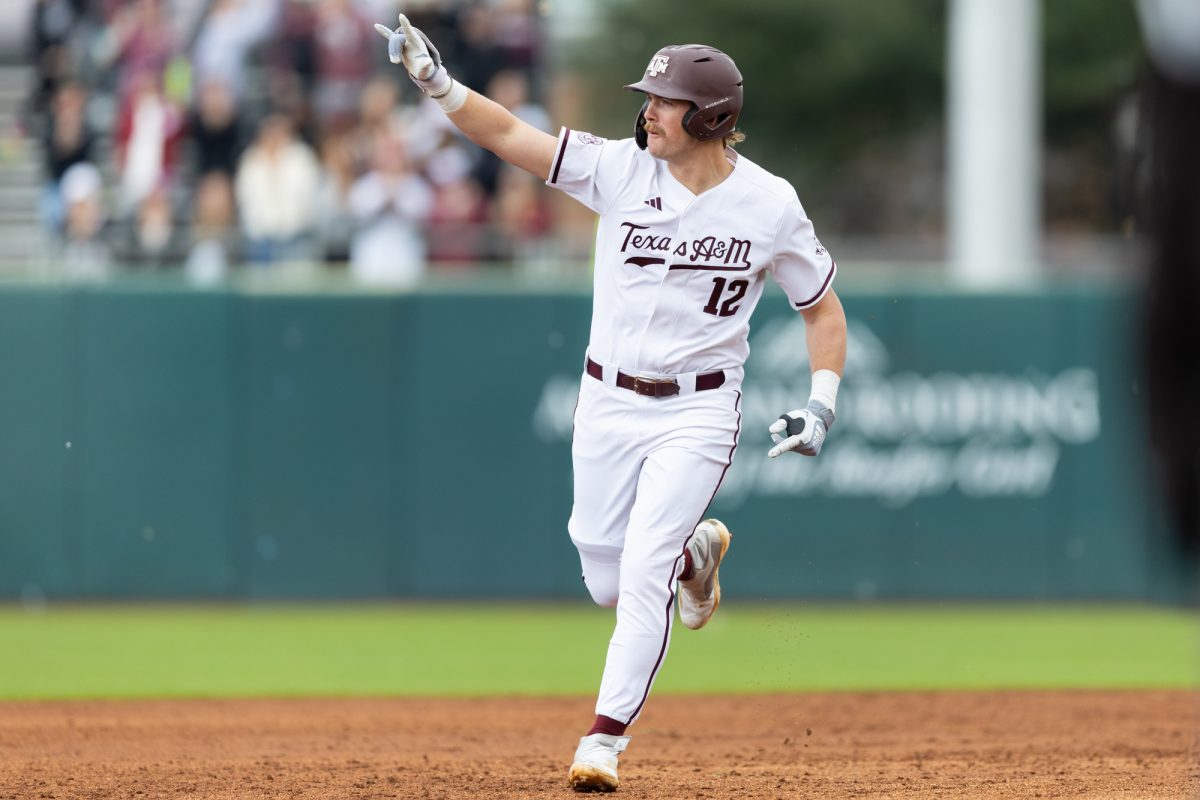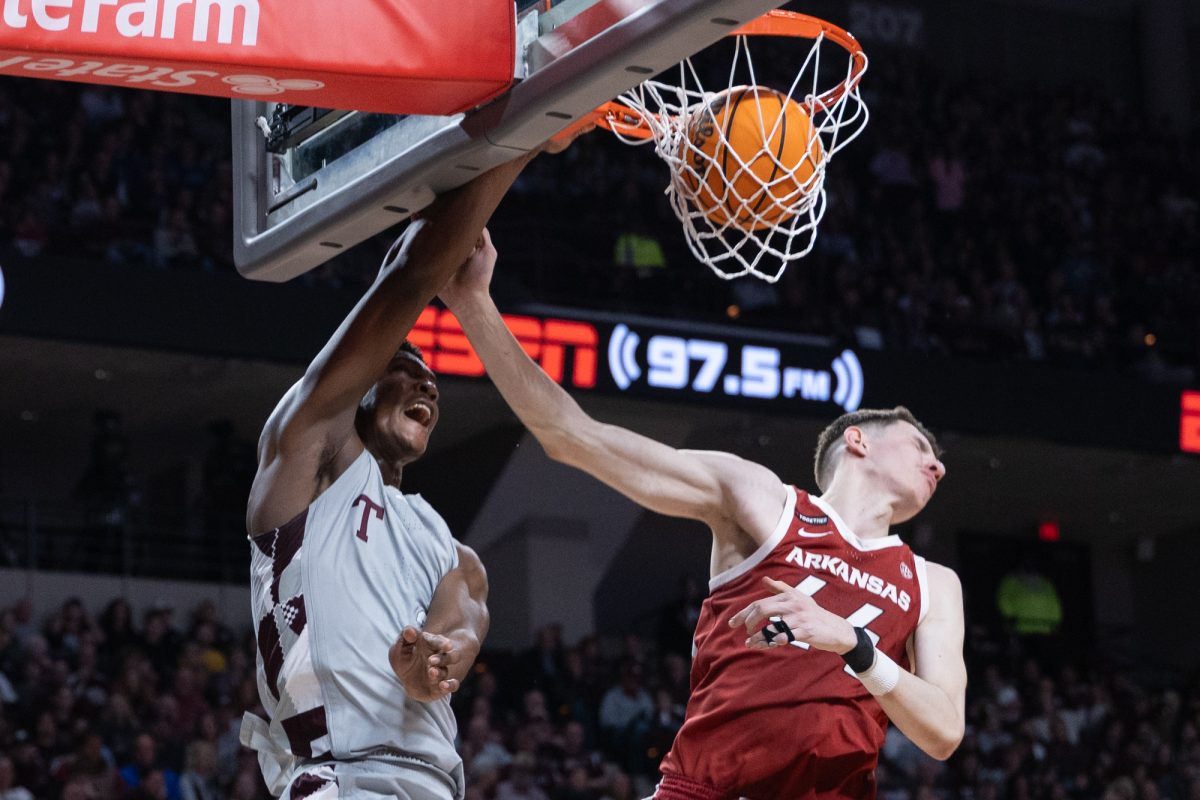Filmmaker and social activist Dustin Lance Black, creator of the Academy Award-winning biopic“Milk,” detailing the life of first openly gay public official Harvey Milk, shared his experience uncovering the lives of the gay community through film Wednesday night in Rudder Theatre. The morning of his lecture, Black sat down with The Battalion Life & Arts reporter Taylor Siskind to talk about his past, his films and being a part of the gay community.
THE BATTALION: You grew up in San Antonio. What brings you back to Texas?
BLACK: Here’s the thing. Mostly I make movies again these days now that the court cases around marriage are over, and my agency also represents public speakers. And for the years that I was doing the court cases around marriage, I would go throughout the nation giving speeches about why I think people should be interested and debate around marriage. Even people who aren’t LGBT, and now that we’ve won that, I told my agents, I said, ‘I want my speaking engagements to be more targeted than that.’ I would love to go to the places where people can get married now on Sunday, but just by going to work and putting up the picture of them and their spouse at work, they can be legally fired. And so I said, ‘Send me to places like that,’ which includes my home state of Texas. You know, because you’re not truly free if you get married and then fired for it.
THE BATTALION: So is that why you picked College Station in general? Because it’s a college town?
BLACK: No. So College Station — first and foremost the schools reach out to the speaking agents, and then I decide which ones I’d like to go to. So two things: One, because it fit the criteria of a place of a state that I feel could utilize the message still. But second, because I’m from Texas, and I want some good food, some barbeque and I can see my brother. He’s here. And you know, it still is one of my favorite places in the world, Texas. I mean I was walking around this morning because I woke up early since I’m still on London time, and I just took a walk to the Starbucks by my hotel and just like the smell of like, the grass and the temperature at that hour in the morning in October and it just was really nostalgic for me. Like I love it.
THE BATTALION: What was it like for you to grow up in a religious home?
BLACK: My family was Mormon, and then I, at a certain age — I think I was 14 — I started going to a Baptist church with my best friend to see if it would work any better for me. I will say that the food at the Baptist church was way better than the food at the Mormon church. But in terms of accepting me for who I am, neither one did a very good job of that. Particularly not back in the 80s. It was — they were both very unaccepting. You know, it went so far in the Mormon church. The Mormon prophet would be beamed into every church in the country on certain Sundays and from his office in Salt Lake City, and I was 6 years old when I first remember him comparing homosexuality to being a murderer. And so I’m 6 and I already have a crush on a boy down the street and I’m like, “Oh my gosh. I’m as bad as a murderer, and if anyone finds out, that’s how I’ll be treated.” It was pretty, pretty horrible.
THE BATTALION: That’s pretty heavy for a six-year-old.
BLACK: It was very heavy for a 6-year-old. And I really loved — in both the Mormon church and in particularly the Baptist church — I really loved the community feeling there. I loved the family feeling there. And you know, it was very difficult to know that if anyone found out about me that would all get ripped away. Whether you’re a religious person or not, there’s value particularly in parts of this country like Texas where church is community. Church is where family meets. Church is where you go to get married. Church is where you go to get comfort if, you know, you’ve lost someone in your family. And to exclude an entire group of people from that sense of community, where that’s sometimes the only place that community meets, just because of who they love … it’s really heartbreaking and potentially really damaging.
THE BATTALION: Do you practice a religion now?
BLACK: No, I don’t. I don’t practice an organized religion right now. You know I think religion, particularly most Christian religions in the United States, as their leadership stands right now, still I don’t feel treat women or LGBT people fairly, and until they do — and I really say the leadership of those churches because I find it very un-Christian that they treat people so unequally — but until the leadership of those churches catch up to where human understanding is now, I don’t align myself with any organized church.
THE BATTALION: What do you mean when you say you don’t practice an organized religion?
BLACK: I don’t align — like I wouldn’t say that I’m a part of an organized religion in the United States right now. Until I think they have more quality for the variety of the different kind of people on this planet, including half of the planet, which is women. I don’t understand why churches don’t treat women equally. And then of course their exclusion of gay and lesbian people is pretty upsetting.
THE BATTALION: I’ve heard different things from different Christians. And it’s a very interesting topic these days.
BLACK: Well, Christians — listen, Christians are very different. Christians mean people who believe in Christ, people who go to church, people who are part of religion. I often get along incredibly well with Christians. I don’t have any problem with religious people. And in fact, I don’t find that most religious people have any problem with women or with LGBT people. It’s the leadership of these churches and some of the politicians who claim to represent them who go out there and say really harmful things. And I actually think they’re out of step with Christians. You do the polling right now in the United States, [it] says that the majority of Christians are in favor of non-discrimination for LGBT people, meaning we should be able to keep our jobs and our homes. A vast majority are in favor. But then you hear these candidates for president saying such heinous things about LGBT people in the name of God. And I kind of wonder, I’m like, ‘Well who do they really represent, these people? They don’t really seem to represent the Christians. They seem out of step.’ So yeah I don’t have any problems with religious people or Christians. I do have a problem with the leadership of some of the organized religions right now.
THE BATTALION: Is that something you want to write further about? A new topic you want to explore?
BLACK: You can, there’s, if you go to my blog on dustinlanceblack.com, I just did a piece. And you might want to read it because you can quote, feel free to quote from it. And it has – it has it really laid out which in that argument I make there is that discriminating against gay people and religion, religious institutions is legal. And it shouldn’t be legal. It shouldn’t be forcing your views on the institution. But I go on to say, “But it’s immoral. It’s not Christian. It’s not moral to do, to exclude people from these institutions like that.” So read that, and it might make it clear. And it also has all of the statistics and things that I just quoted in there.
THE BATTALION: So some of your written works were inspired by real people, is there anyone else who inspired you to write?
BLACK: You know, there are stories from history that get lost, that if we could unearth them and bring them back to life, they have a lot to offer to where we are today and where we need to go tomorrow. In particularly, social justice issues. So there are stories, certainly more LGBT stories that need to be told because that history has been buried for so long, and I think that you’re not truly a people until you have history. And so being able to tell the stories of LGBT people building a popularized history that young people can access and learn that they had forefathers and foremothers, well that is self-esteem saving. That is confidence saving. That helps create a people. But I think it goes beyond LGBT issues. You know, we see a movie that’s out in theaters right now about women’s equality and that story being brought back up at time where it’s necessary. Only right now, as we come to understand the Black Lives Matter Movement, there are certainly stories from the past that could help us understand that even better if they were brought back to life. But I say, I draw in stories from the past only in so far as they have the potential to influence the future. So I might find a story really compelling from the past, but if it does, if it’s not necessary. If it doesn’t help us in three, five years, which is how long it takes to make a movie, then I don’t bother doing it. So I’m really only interested in stories that influence the future. So right now, one of the stories that I’m really interested in is Bayard Rustin. Bayard Rustin was the organizer of the March on Washington for Jobs and Freedom, the big march that was famous by Martin Luther King’s “I Have a Dream” speech. And Bayard Rustin was not only an African-American man, he was also an openly gay man at a time when that was almost unheard of. And so his stories are rather inspiring, one that crosses two different social justice movements. That’s one that I’m working on over at HBO right now.
THE BATTALION: Is that why you write then? Did you know that movies like that would have such a big impact? Is that the reason?
BLACK: I tell stories in order to move the needle on issues that I find important. If I don’t think it can change where we are as a people for the better, then I don’t bother doing it. And so that means that if I’m telling stories through films like “Milk” or theatre like the “Prop. 8” play that I did or the stories we told in the courtroom around the Proposition 8 trial itself. I mean, the stories have our lawyers, the stories have our plaintiffs. You know, I think it’s — I believe that it’s storytelling that changes hearts and minds, creates understanding. And when you create understanding, you remove fear, you remove misconceptions, and you make life better and safer for people, and so you know. The past eight years have been really dedicated to storytelling around LGBT issues because I think that is a group that I’m a member of so I can speak to it personally. But it’s also a group that is incredibly misunderstood, or has been. And is becoming more, better understood, you know, daily. And with each story we tell, even in places like Texas, we see growing acceptance daily.
In an earlier version of this story, The Battalion incorrectly quoted Dustin Lance Black saying an employee can be “illegally fired” instead of “legally fired” for openly expressing their gay relationship with a spouse. Also, The Battalion incorrectly published Black saying discriminating against gay people and religion “should be legal” instead of “shouldn’t be legal.”




